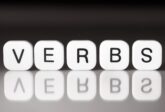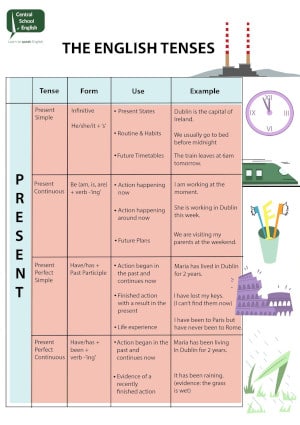Wish and If only

Do you ever find yourself wishing English grammar was easy?
If only you had somebody to explain it in a simple way.
Well to answer your questions, English can be easy and today you do have someone to explain it in an easy way.
At Central School of English, Dublin, we care about our students progress and always try to help them with their questions and struggles.
If you are having trouble with ‘wish’ and ‘If only’, you have come to the right place.
Wish
In today’s post, we are going to talk about when to use ‘wish’ and ‘if only’, but before we dive straight into it, let’s take an overview of when we use wish.
We use wish for 3 main reasons:
- To express that we would like things to change or be different from the way they are now.
- To express our regret for things in the past
- To express that we are irritated by something and want it to change e.g habits or for the future.
Wish for present things we would like to change
Do you ever just sit there dreaming of being somewhere else?
Right now you are visiting this website. That’s good! However, maybe you would like to be somewhere else.
Maybe you would like to be on a beach somewhere sunbathing and drinking cocktails.
We can use wish to say this:
I wish I were on a beach right now drinking cocktails.
Think of some other dreams you might have for the present:
I wish I had a million euro – (you don’t have a million euro)
I wish it were Christmas – (It is not Christmas today)
I wish he/she were my boyfriend/girlfriend – ( You are not in a relationship with them)
In all of these situations you are imagining something that is not a present reality.
It is important to remember that although we are talking about the present we use the past simple with the verb wish.
The structure is: Subject + wish + object + past simple
Wish + past simple
We use subject + wish + object + past simple to express we want things to be different from the way they are now
Wish + past perfect (Regrets)
We often have regrets in our lives, things we wish we could have done differently in the past.
We can use wish + past perfect to express these regrets.
Think of the following sentence:
I wish I had gone to bed earlier.
In this sentence, we see the person regrets not going to bed early and maybe they are tired now.
Some more examples of regrets might be:
I wish I had studied harder at school. (The person didn’t study hard enough at school)
I wish I had applied for that job in the library. (The person didn’t apply for the job)
I wish I had asked that girl/boy out when they were single. (The person didn’t ask the boy/girl out.)
In all of these situations, the person is talking about something in the past that they wish they could change, and they are using the past perfect.
To form this sentence, we use: Subject + wish + past perfect
Wish + past perfect
We use subject + wish + past perfect for regrets in the past.
Wish + would (irritating habits and the future)
Apart from imagining a different present or past, we can also use wish to talk about habits that annoy us in the present.
Imagine somebody has an annoying habit that drives you crazy and you want to tell them that you would rather they didn’t do it. We can use wish and say:
I wish you wouldn’t make so much noise early in the morning. It wakes me up.
Here are some more examples:
I wish you wouldn’t make such a mess.
I wish he/she would take me to a restaurant more often.
I wish we would spend more time together.
In each of these situations, the person is irritated at another person’s habit.
To make this structure, we use: Subject + wish + Object + would/wouldn’t + infinitive
We can also use this structure to refer to the future.
Imagine that your friend isn’t going to the party with you tonight but you want him to go.
I wish you would come to the party tonight. I don’t want to go alone.”
Here the word tonight is referring to the future.
Wish + would
We use wish + would + infinitive to express we are unhappy with a habit or we want something to happen in the future
Wish in formal English
In formal writing we can use wish instead of want or would like. For example, If you are applying for a job you could write:
I wish to apply for the position of shop assistant.
This means you want to apply for the position of shop assistant.
If we don’t want to sound very formal we use would like:
I would like to apply for the position of shop assistant.
Here are some more examples:
We wish to inform you that your account has been closed.
Pete and Sue wish to invite you to their wedding reception.
If only
We often use If only in the same way as wish when we want to be emphatic.
We can use it for all three structures:
If only I were on a beach!
“If only I had gone to bed early!”
If only you would come to the party with me tomorrow!
Furthermore, If only can be used to reply to someone as a short answer:
Are you going on holiday this year?
If only!
Ok, so we have one more thing to cover!
We can also use wish + infinitive in formal English and it means want or would like.
We often receive emails like this:
Dear Mr./Ms. Brown,
I wish to inform you…
It is usually used to convey some kind of information so we use it with words like: say, tell, inform, express etc.
Test Yourself
Choose the correct form of‘wish’ or ‘If only’ to complete sentences.
Vocabulary
Struggle: when something is difficult to do/understand
To have trouble with: when we have some problems with something
Daydream: to imagine something in your head while not paying attention to what is happening in the present
Phrasal Verbs
Dive straight into: start something now without delay
Example: We have a lot to do so lets dive straight in
To break something down: To separate out into different parts / to analyze
Example: This project is too detailed, let’s break it down
Idioms
Get on somebody’s nerves: to annoy somebody
Example: Stop talking to me while I’m trying to watch the TV. You’re getting on my nerves.
Test Yourself
Complete sentences using vocabulary and phrasal verbs from this post.
Thanks for reading! Did you like it? Let us know in the comments.
If you would like some more English grammar tips you can find them in our grammar section and if you’d like information on our English courses in Dublin, please do not hesitate to contact us.






